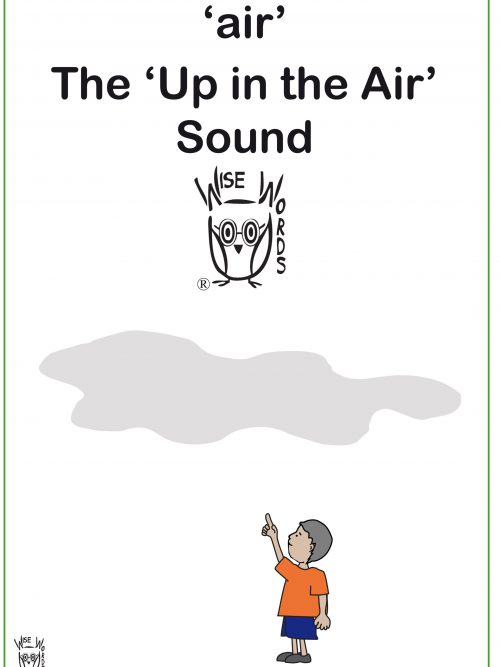-
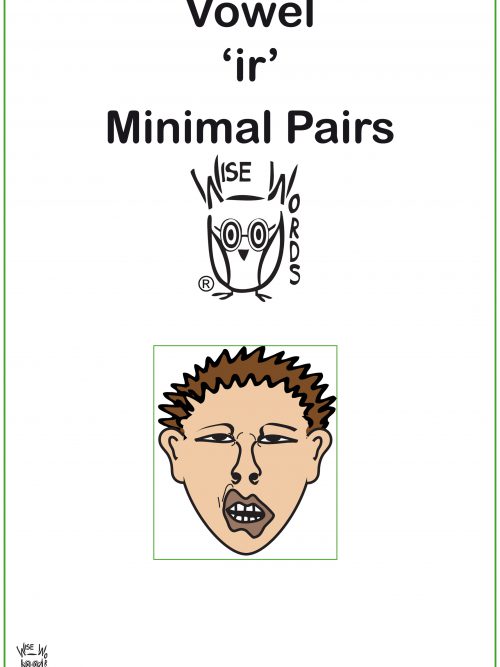
Vowel 'ir' Minimal Pairs
Using Contrastive Pairs This program uses the contrastive phonological approach of Minimal Pairs. The use of minimal pairs is supported by evidence based practice and has been shown to be an effective and efficient treatment for contrasting vowels or consonants. The minimal pair approach - Although many children progress quickly through a vowel articulation program, some children respond more quickly using a phonological approach. The minimal pair approach involves single contrastive pairings of the child’s error with the target sound. In this program the vowel ‘ir’ is contrasted with ‘or’ which most typically replaces ‘ir’. As vocabulary restrictions prevent minimal pair practice at the CV (consonant-vowel) or VC (vowel-consonant) level, it is necessary to use CVC (consonant-vowel-consonant) words as minimal pairs. It is recommended that some ‘ir’ words are not targeted in practice. This group of words should be retained as a probe for generalisation. -
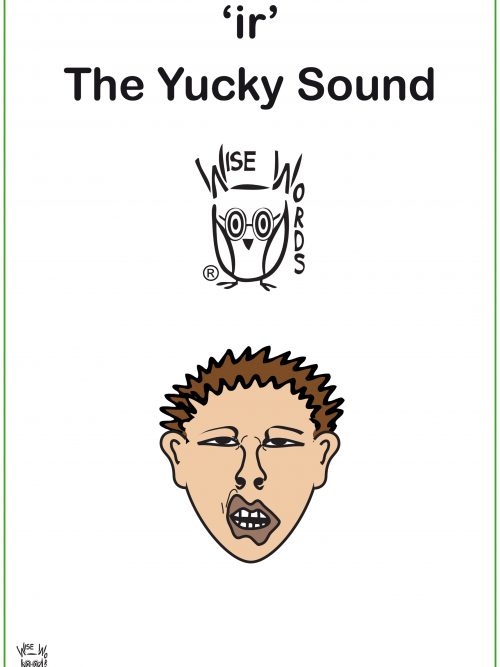
'The Yucky Sound'
Wise Words Articulation Programs support clinicians, teachers and parents to establish 'new' (correct) sounds into their child's speech. Each program supplies detailed instructions for every task and game. The instructions have been written in a clear manner for a non-professional to follow. Numerous games are provided. These games have been designed to be fun and interactive and will ensure that the child remains engaged and compliant. Playing the games will help the child to generalise the ‘new’ sound into their everyday speech. -
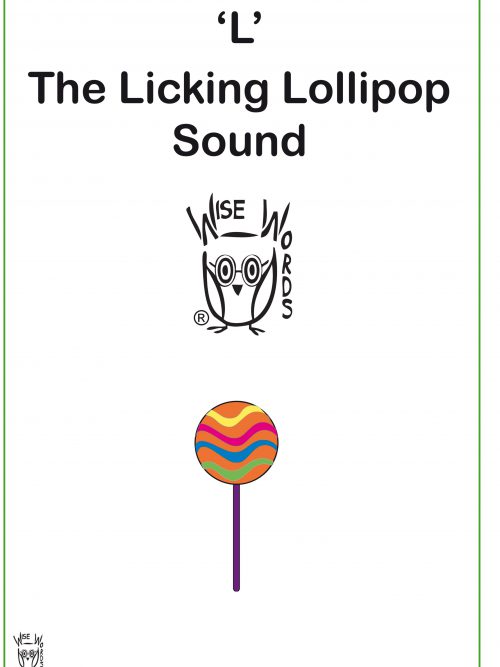 Wise Words Articulation Programs - support clinicians, teachers and parents to establish 'new' (correct) sounds into their child's speech. Each program supplies detailed instructions for every task and game. The instructions have been written in a clear manner for a non-professional to follow. Numerous games are provided. These games have been designed to be fun and interactive and will ensure that the child remains engaged and compliant. Playing the games will help the child to generalise the ‘new’ sound into their everyday speech.
Wise Words Articulation Programs - support clinicians, teachers and parents to establish 'new' (correct) sounds into their child's speech. Each program supplies detailed instructions for every task and game. The instructions have been written in a clear manner for a non-professional to follow. Numerous games are provided. These games have been designed to be fun and interactive and will ensure that the child remains engaged and compliant. Playing the games will help the child to generalise the ‘new’ sound into their everyday speech. -
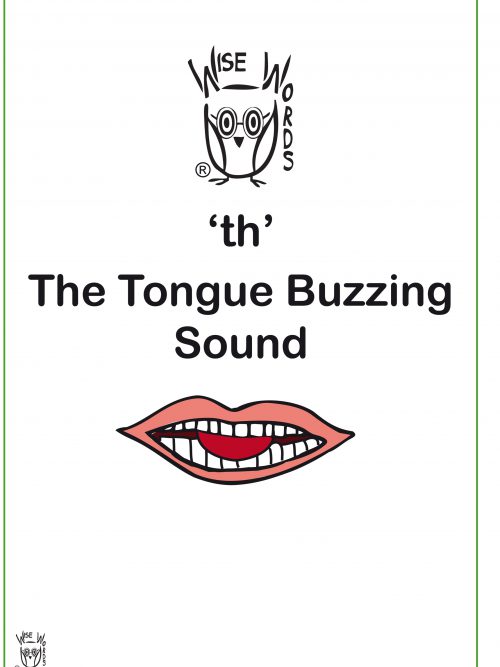 Wise Words Articulation Programs support clinicians, teachers and parents to establish 'new' (correct) sounds into their child's speech. Each program supplies detailed instructions for every task and game. The instructions have been written in a clear manner for a non-professional to follow. Numerous games are provided. These games have been designed to be fun and interactive and will ensure that the child remains engaged and compliant. Playing the games will help the child to generalise the ‘new’ sound into their everyday speech.
Wise Words Articulation Programs support clinicians, teachers and parents to establish 'new' (correct) sounds into their child's speech. Each program supplies detailed instructions for every task and game. The instructions have been written in a clear manner for a non-professional to follow. Numerous games are provided. These games have been designed to be fun and interactive and will ensure that the child remains engaged and compliant. Playing the games will help the child to generalise the ‘new’ sound into their everyday speech. -
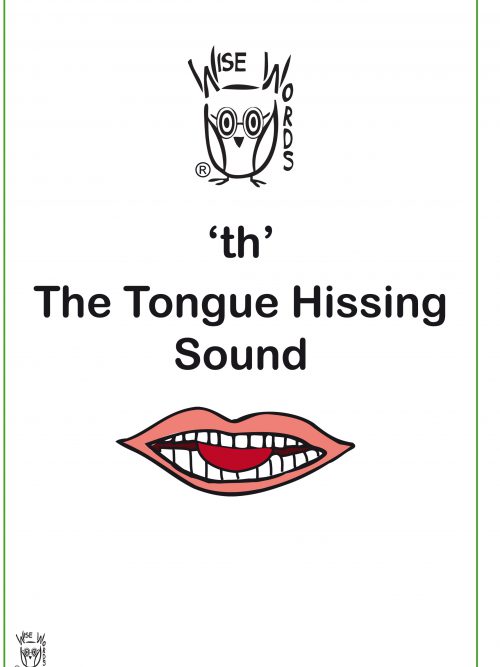 Wise Words Articulation Programs support clinicians, teachers and parents to establish 'new' (correct) sounds into their child's speech. Each program supplies detailed instructions for every task and game. The instructions have been written in a clear manner for a non-professional to follow. Numerous games are provided. These games have been designed to be fun and interactive and will ensure that the child remains engaged and compliant. Playing the games will help the child to generalise the ‘new’ sound into their everyday speech.
Wise Words Articulation Programs support clinicians, teachers and parents to establish 'new' (correct) sounds into their child's speech. Each program supplies detailed instructions for every task and game. The instructions have been written in a clear manner for a non-professional to follow. Numerous games are provided. These games have been designed to be fun and interactive and will ensure that the child remains engaged and compliant. Playing the games will help the child to generalise the ‘new’ sound into their everyday speech. -
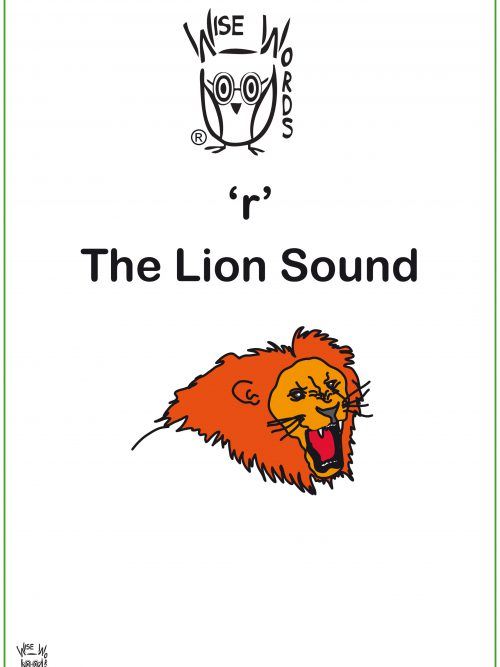 Wise Words Articulation Programs - support clinicians, teachers and parents to establish 'new' (correct) sounds into their child's speech. Each program supplies detailed instructions for every task and game. The instructions have been written in a clear manner for a non-professional to follow. Numerous games are provided. These games have been designed to be fun and interactive and will ensure that the child remains engaged and compliant. Playing the games will help the child to generalise the ‘new’ sound into their everyday speech..
Wise Words Articulation Programs - support clinicians, teachers and parents to establish 'new' (correct) sounds into their child's speech. Each program supplies detailed instructions for every task and game. The instructions have been written in a clear manner for a non-professional to follow. Numerous games are provided. These games have been designed to be fun and interactive and will ensure that the child remains engaged and compliant. Playing the games will help the child to generalise the ‘new’ sound into their everyday speech.. -
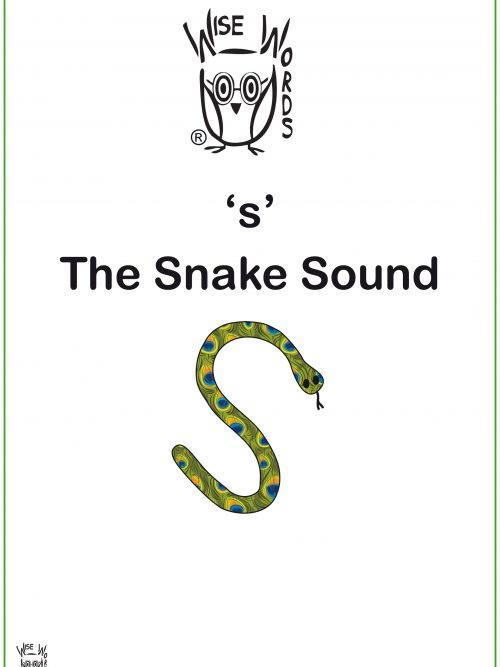 Wise Words Articulation Programs - support clinicians, teachers and parents to establish 'new' (correct) sounds into their child's speech. Each program supplies detailed instructions for every task and game. The instructions have been written in a clear manner for a non-professional to follow. Numerous games are provided. These games have been designed to be fun and interactive and will ensure that the child remains engaged and compliant. Playing the games will help the child to generalise the ‘new’ sound into their everyday speech.
Wise Words Articulation Programs - support clinicians, teachers and parents to establish 'new' (correct) sounds into their child's speech. Each program supplies detailed instructions for every task and game. The instructions have been written in a clear manner for a non-professional to follow. Numerous games are provided. These games have been designed to be fun and interactive and will ensure that the child remains engaged and compliant. Playing the games will help the child to generalise the ‘new’ sound into their everyday speech. -
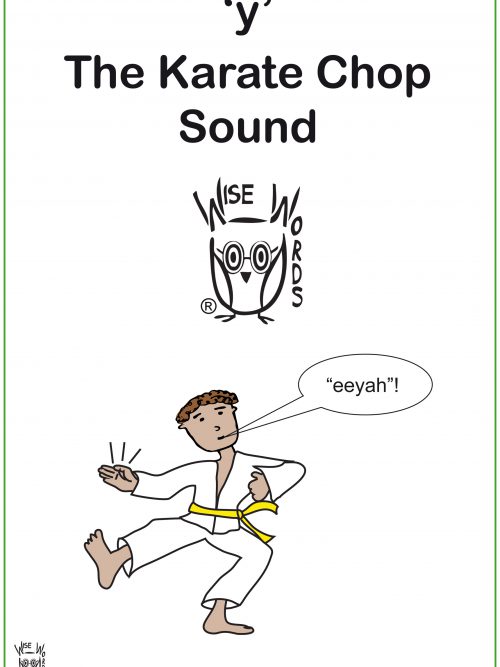 Y - The Karate Chop Sound Wise Words Articulation Programs - support clinicians, teachers and parents to establish 'new' (correct) sounds into their child's speech. Each program supplies detailed instructions for every task and game. The instructions have been written in a clear manner for a non-professional to follow. Numerous games are provided. These games have been designed to be fun and interactive and will ensure that the child remains engaged and compliant. Playing the games will help the child to generalise the ‘new’ sound into their everyday speech.
Y - The Karate Chop Sound Wise Words Articulation Programs - support clinicians, teachers and parents to establish 'new' (correct) sounds into their child's speech. Each program supplies detailed instructions for every task and game. The instructions have been written in a clear manner for a non-professional to follow. Numerous games are provided. These games have been designed to be fun and interactive and will ensure that the child remains engaged and compliant. Playing the games will help the child to generalise the ‘new’ sound into their everyday speech. -
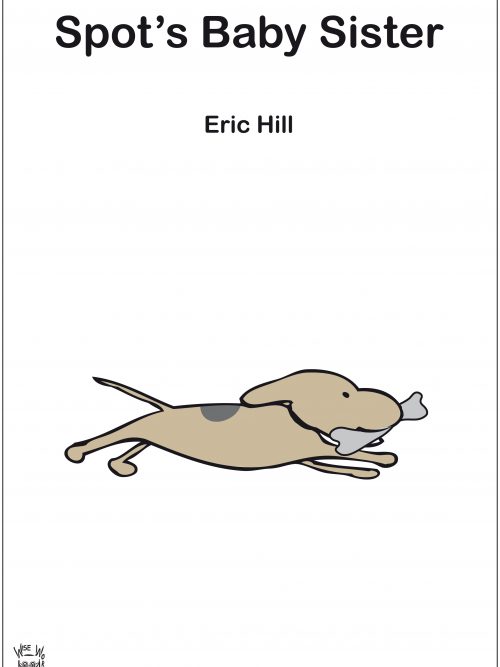 USING BOOKS TO ENHANCE A CHILD'S UNDERSTANDING AND INCREASE HIS/HER EXPRESSIVE LANGUAGE You can use a book to expand a child's • Vocabulary (armchair, bone, running, hiding, searching) • Understanding of concepts (e.g. tired, naughty, under) • Ability to understand questions Wise Words Scripts - offer clinicians, teachers and parents readily available questions designed specifically for each book. A script provides a variety of questions at each level of understanding for each page of the book. A teacher or clinician working with a group of children can tailor questions to each child's language ability. This script and other available scripts have been based on Marion Blank's Model of Classroom Language. Marion Blank recognised the importance of keeping questions and statements within a child’s level of understanding. The more concrete the statement or question, the easier it will be for the child to understand. As questions become more abstract, they become harder for children to answer. The Blank Model is divided into 4 levels of questioning, moving from the concrete (easiest) at Level 1 to the abstract (most difficult) at Level 4.
USING BOOKS TO ENHANCE A CHILD'S UNDERSTANDING AND INCREASE HIS/HER EXPRESSIVE LANGUAGE You can use a book to expand a child's • Vocabulary (armchair, bone, running, hiding, searching) • Understanding of concepts (e.g. tired, naughty, under) • Ability to understand questions Wise Words Scripts - offer clinicians, teachers and parents readily available questions designed specifically for each book. A script provides a variety of questions at each level of understanding for each page of the book. A teacher or clinician working with a group of children can tailor questions to each child's language ability. This script and other available scripts have been based on Marion Blank's Model of Classroom Language. Marion Blank recognised the importance of keeping questions and statements within a child’s level of understanding. The more concrete the statement or question, the easier it will be for the child to understand. As questions become more abstract, they become harder for children to answer. The Blank Model is divided into 4 levels of questioning, moving from the concrete (easiest) at Level 1 to the abstract (most difficult) at Level 4. -
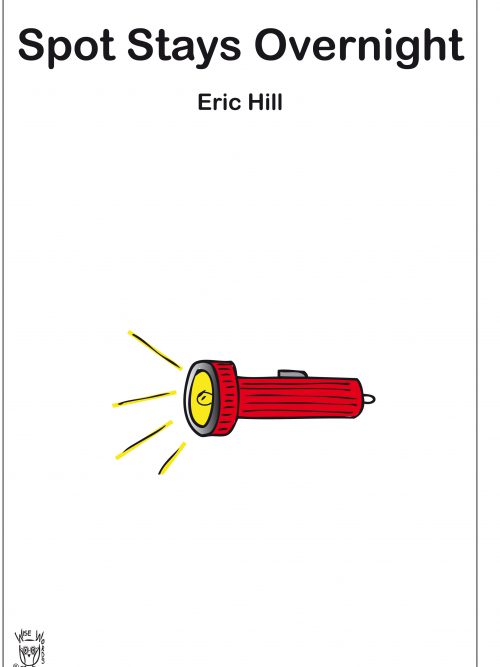 USING BOOKS TO ENHANCE A CHILD'S UNDERSTANDING AND INCREASE HIS/HER EXPRESSIVE LANGUAGE You can use a book to expand a child's • vocabulary (binoculars, torch, branch, sleeping bag, swinging, sliding) • understanding of concepts (e.g. favourite, slippery, high, tired, late) • ability to understand questions Wise Words Scripts - offer clinicians, teachers and parents readily available questions designed specifically for each book. A script provides a variety of questions at each level of understanding for each page of the book. A teacher or clinician working with a group of children can tailor questions to each child's language ability. This script and other available scripts have been based on Marion Blank's Model of Classroom Language. Marion Blank recognised the importance of keeping questions and statements within a child’s level of understanding. The more concrete the statement or question, the easier it will be for the child to understand. As questions become more abstract, they become harder for children to answer. The Blank Model is divided into 4 levels of questioning, moving from the concrete (easiest) at Level 1 to the abstract (most difficult) at Level 4.
USING BOOKS TO ENHANCE A CHILD'S UNDERSTANDING AND INCREASE HIS/HER EXPRESSIVE LANGUAGE You can use a book to expand a child's • vocabulary (binoculars, torch, branch, sleeping bag, swinging, sliding) • understanding of concepts (e.g. favourite, slippery, high, tired, late) • ability to understand questions Wise Words Scripts - offer clinicians, teachers and parents readily available questions designed specifically for each book. A script provides a variety of questions at each level of understanding for each page of the book. A teacher or clinician working with a group of children can tailor questions to each child's language ability. This script and other available scripts have been based on Marion Blank's Model of Classroom Language. Marion Blank recognised the importance of keeping questions and statements within a child’s level of understanding. The more concrete the statement or question, the easier it will be for the child to understand. As questions become more abstract, they become harder for children to answer. The Blank Model is divided into 4 levels of questioning, moving from the concrete (easiest) at Level 1 to the abstract (most difficult) at Level 4. -
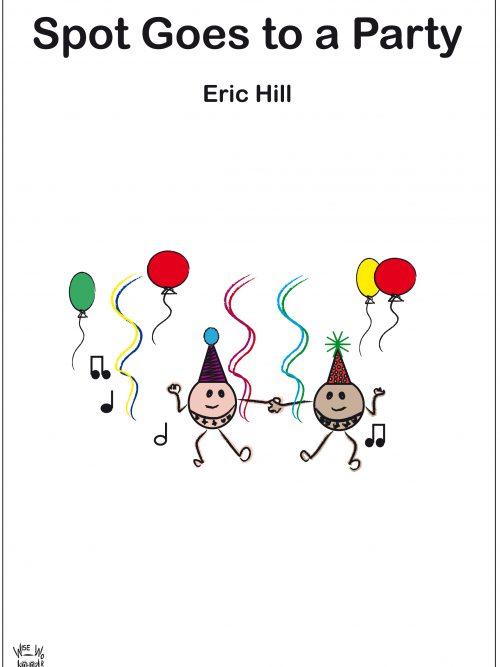 USING BOOKS TO ENHANCE A CHILD'S UNDERSTANDING AND INCREASE HIS/HER EXPRESSIVE LANGUAGE You can use a book to expand a child's • vocabulary (invitation, balloons, riding, dancing, horse) • understanding of concepts (e.g. inside, under, surprised, all) • ability to understand questions Wise Words Scripts - offer clinicians, teachers and parents readily available questions designed specifically for each book. A script provides a variety of questions at each level of understanding for each page of the book. A teacher or clinician working with a group of children can tailor questions to each child's language ability. This script and other available scripts have been based on Marion Blank's Model of Classroom Language. Marion Blank recognised the importance of keeping questions and statements within a child’s level of understanding. The more concrete the statement or question, the easier it will be for the child to understand. As questions become more abstract, they become harder for children to answer. The Blank Model is divided into 4 levels of questioning, moving from the concrete (easiest) at Level 1 to the abstract (most difficult) at Level 4.
USING BOOKS TO ENHANCE A CHILD'S UNDERSTANDING AND INCREASE HIS/HER EXPRESSIVE LANGUAGE You can use a book to expand a child's • vocabulary (invitation, balloons, riding, dancing, horse) • understanding of concepts (e.g. inside, under, surprised, all) • ability to understand questions Wise Words Scripts - offer clinicians, teachers and parents readily available questions designed specifically for each book. A script provides a variety of questions at each level of understanding for each page of the book. A teacher or clinician working with a group of children can tailor questions to each child's language ability. This script and other available scripts have been based on Marion Blank's Model of Classroom Language. Marion Blank recognised the importance of keeping questions and statements within a child’s level of understanding. The more concrete the statement or question, the easier it will be for the child to understand. As questions become more abstract, they become harder for children to answer. The Blank Model is divided into 4 levels of questioning, moving from the concrete (easiest) at Level 1 to the abstract (most difficult) at Level 4. -
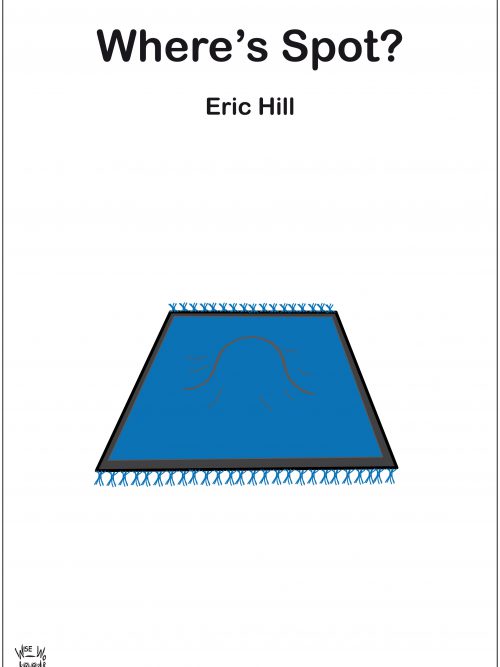 USING BOOKS TO ENHANCE A CHILD'S UNDERSTANDING AND INCREASE HIS/HER EXPRESSIVE LANGUAGE You can use a book to expand a child's • vocabulary (honey, clock, piano, hippo, eating, racing, basket, rug) • understanding of concepts (e.g. empty, hungry, under, in, naughty) • ability to understand questions Wise Words Scripts - offer clinicians, teachers and parents readily available questions designed specifically for each book. A script provides a variety of questions at each level of understanding for each page of the book. A teacher or clinician working with a group of children can tailor questions to each child's language ability. This script and other available scripts have been based on Marion Blank's Model of Classroom Language. Marion Blank recognised the importance of keeping questions and statements within a child’s level of understanding. The more concrete the statement or question, the easier it will be for the child to understand. As questions become more abstract, they become harder for children to answer. The Blank Model is divided into 4 levels of questioning, moving from the concrete (easiest) at Level 1 to the abstract (most difficult) at Level 4.
USING BOOKS TO ENHANCE A CHILD'S UNDERSTANDING AND INCREASE HIS/HER EXPRESSIVE LANGUAGE You can use a book to expand a child's • vocabulary (honey, clock, piano, hippo, eating, racing, basket, rug) • understanding of concepts (e.g. empty, hungry, under, in, naughty) • ability to understand questions Wise Words Scripts - offer clinicians, teachers and parents readily available questions designed specifically for each book. A script provides a variety of questions at each level of understanding for each page of the book. A teacher or clinician working with a group of children can tailor questions to each child's language ability. This script and other available scripts have been based on Marion Blank's Model of Classroom Language. Marion Blank recognised the importance of keeping questions and statements within a child’s level of understanding. The more concrete the statement or question, the easier it will be for the child to understand. As questions become more abstract, they become harder for children to answer. The Blank Model is divided into 4 levels of questioning, moving from the concrete (easiest) at Level 1 to the abstract (most difficult) at Level 4. -
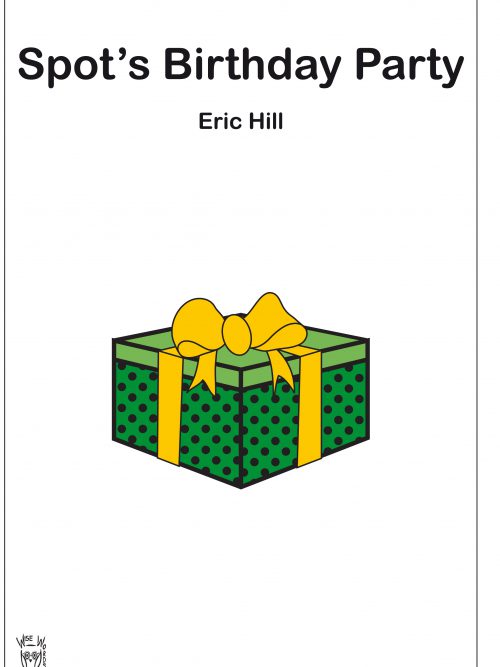 USING BOOKS TO ENHANCE A CHILD'S UNDERSTANDING AND INCREASE HIS/HER EXPRESSIVE LANGUAGE You can use a book to expand a child's • vocabulary (crocodile, lamp, crown, curtain, jelly, lead, umbrella) • understanding of concepts (e.g. loud, large, under, round, messy) • ability to understand questions Wise Words Scripts - offer clinicians, teachers and parents readily available questions designed specifically for each book. A script provides a variety of questions at each level of understanding for each page of the book. A teacher or clinician working with a group of children can tailor questions to each child's language ability. This script and other available scripts have been based on Marion Blank's Model of Classroom Language. Marion Blank recognised the importance of keeping questions and statements within a child’s level of understanding. The more concrete the statement or question, the easier it will be for the child to understand. As questions become more abstract, they become harder for children to answer. The Blank Model is divided into 4 levels of questioning, moving from the concrete (easiest) at Level 1 to the abstract (most difficult) at Level 4.
USING BOOKS TO ENHANCE A CHILD'S UNDERSTANDING AND INCREASE HIS/HER EXPRESSIVE LANGUAGE You can use a book to expand a child's • vocabulary (crocodile, lamp, crown, curtain, jelly, lead, umbrella) • understanding of concepts (e.g. loud, large, under, round, messy) • ability to understand questions Wise Words Scripts - offer clinicians, teachers and parents readily available questions designed specifically for each book. A script provides a variety of questions at each level of understanding for each page of the book. A teacher or clinician working with a group of children can tailor questions to each child's language ability. This script and other available scripts have been based on Marion Blank's Model of Classroom Language. Marion Blank recognised the importance of keeping questions and statements within a child’s level of understanding. The more concrete the statement or question, the easier it will be for the child to understand. As questions become more abstract, they become harder for children to answer. The Blank Model is divided into 4 levels of questioning, moving from the concrete (easiest) at Level 1 to the abstract (most difficult) at Level 4. -
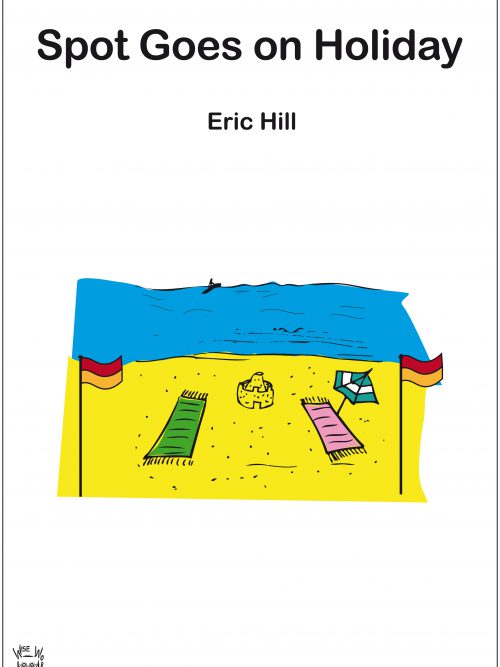 USING BOOKS TO ENHANCE A CHILD'S UNDERSTANDING AND INCREASE HIS/HER EXPRESSIVE LANGUAGE You can use a book to expand a child's • Vocabulary (seagull, beach, towel, fishing net, wave, rowing) • Understanding of concepts (wet, sandy, angry) • Ability to understand questions Wise Words Scripts - offer clinicians, teachers and parents readily available questions designed specifically for each book. A script provides a variety of questions at each level of understanding for each page of the book. A teacher or clinician working with a group of children can tailor questions to each child's language ability. This script and other available scripts have been based on Marion Blank's Model of Classroom Language. Marion Blank recognised the importance of keeping questions and statements within a child’s level of understanding. The more concrete the statement or question, the easier it will be for the child to understand. As questions become more abstract, they become harder for children to answer. The Blank Model is divided into 4 levels of questioning, moving from the concrete (easiest) at Level 1 to the abstract (most difficult) at Level 4.
USING BOOKS TO ENHANCE A CHILD'S UNDERSTANDING AND INCREASE HIS/HER EXPRESSIVE LANGUAGE You can use a book to expand a child's • Vocabulary (seagull, beach, towel, fishing net, wave, rowing) • Understanding of concepts (wet, sandy, angry) • Ability to understand questions Wise Words Scripts - offer clinicians, teachers and parents readily available questions designed specifically for each book. A script provides a variety of questions at each level of understanding for each page of the book. A teacher or clinician working with a group of children can tailor questions to each child's language ability. This script and other available scripts have been based on Marion Blank's Model of Classroom Language. Marion Blank recognised the importance of keeping questions and statements within a child’s level of understanding. The more concrete the statement or question, the easier it will be for the child to understand. As questions become more abstract, they become harder for children to answer. The Blank Model is divided into 4 levels of questioning, moving from the concrete (easiest) at Level 1 to the abstract (most difficult) at Level 4. -
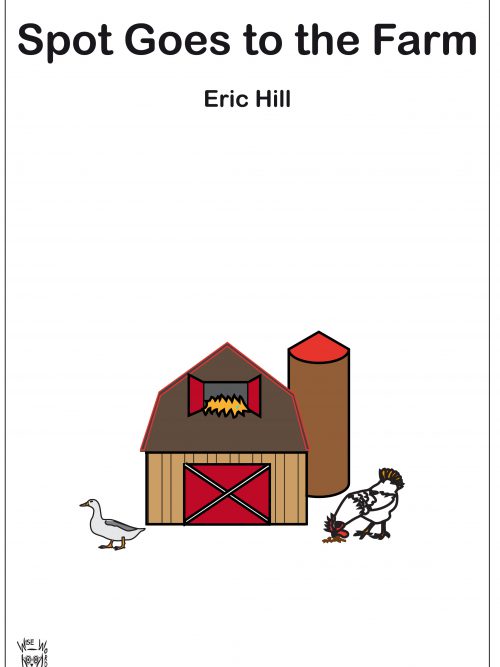 USING BOOKS TO ENHANCE A CHILD'S UNDERSTANDING AND INCREASE HIS/HER EXPRESSIVE LANGUAGE You can use a book to expand a child's • vocabulary (tractor, driving, wheels, stable, bucket, straw, sheep, pegs) • understanding of concepts (e.g. wet, dry, soft, behind, in) • ability to understand questions Wise Words Scripts - offer clinicians, teachers and parents readily available questions designed specifically for each book. A script provides a variety of questions at each level of understanding for each page of the book. A teacher or clinician working with a group of children can tailor questions to each child's language ability. This script and other available scripts have been based on Marion Blank's Model of Classroom Language. Marion Blank recognised the importance of keeping questions and statements within a child’s level of understanding. The more concrete the statement or question, the easier it will be for the child to understand. As questions become more abstract, they become harder for children to answer. The Blank Model is divided into 4 levels of questioning, moving from the concrete (easiest) at Level 1 to the abstract (most difficult) at Level 4.
USING BOOKS TO ENHANCE A CHILD'S UNDERSTANDING AND INCREASE HIS/HER EXPRESSIVE LANGUAGE You can use a book to expand a child's • vocabulary (tractor, driving, wheels, stable, bucket, straw, sheep, pegs) • understanding of concepts (e.g. wet, dry, soft, behind, in) • ability to understand questions Wise Words Scripts - offer clinicians, teachers and parents readily available questions designed specifically for each book. A script provides a variety of questions at each level of understanding for each page of the book. A teacher or clinician working with a group of children can tailor questions to each child's language ability. This script and other available scripts have been based on Marion Blank's Model of Classroom Language. Marion Blank recognised the importance of keeping questions and statements within a child’s level of understanding. The more concrete the statement or question, the easier it will be for the child to understand. As questions become more abstract, they become harder for children to answer. The Blank Model is divided into 4 levels of questioning, moving from the concrete (easiest) at Level 1 to the abstract (most difficult) at Level 4. -
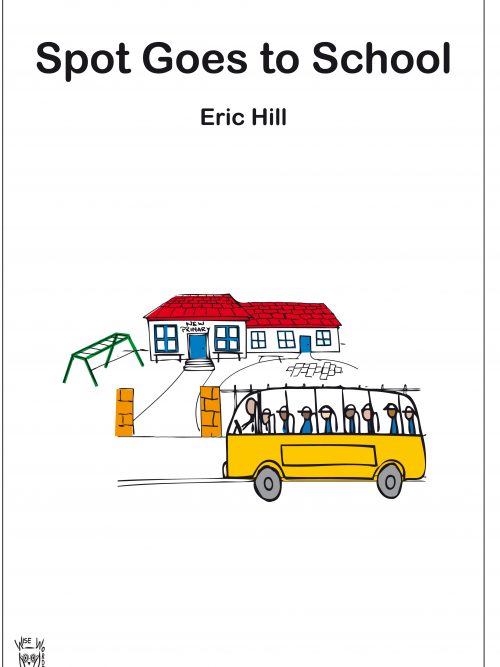 USING BOOKS TO ENHANCE A CHILD'S UNDERSTANDING AND INCREASE HIS/HER EXPRESSIVE LANGUAGE You can use a book to expand a child's • vocabulary (easel, paints, bell, singing, drawing, cubby house, chimney) • understanding of concepts (e.g. sad, prickly, up, under, heavy, mess) • ability to understand questions Wise Words Scripts - offer clinicians, teachers and parents readily available questions designed specifically for each book. A script provides a variety of questions at each level of understanding for each page of the book. A teacher or clinician working with a group of children can tailor questions to each child's language ability. This script and other available scripts have been based on Marion Blank's Model of Classroom Language. Marion Blank recognised the importance of keeping questions and statements within a child’s level of understanding. The more concrete the statement or question, the easier it will be for the child to understand. As questions become more abstract, they become harder for children to answer. The Blank Model is divided into 4 levels of questioning, moving from the concrete (easiest) at Level 1 to the abstract (most difficult) at Level 4.
USING BOOKS TO ENHANCE A CHILD'S UNDERSTANDING AND INCREASE HIS/HER EXPRESSIVE LANGUAGE You can use a book to expand a child's • vocabulary (easel, paints, bell, singing, drawing, cubby house, chimney) • understanding of concepts (e.g. sad, prickly, up, under, heavy, mess) • ability to understand questions Wise Words Scripts - offer clinicians, teachers and parents readily available questions designed specifically for each book. A script provides a variety of questions at each level of understanding for each page of the book. A teacher or clinician working with a group of children can tailor questions to each child's language ability. This script and other available scripts have been based on Marion Blank's Model of Classroom Language. Marion Blank recognised the importance of keeping questions and statements within a child’s level of understanding. The more concrete the statement or question, the easier it will be for the child to understand. As questions become more abstract, they become harder for children to answer. The Blank Model is divided into 4 levels of questioning, moving from the concrete (easiest) at Level 1 to the abstract (most difficult) at Level 4. -
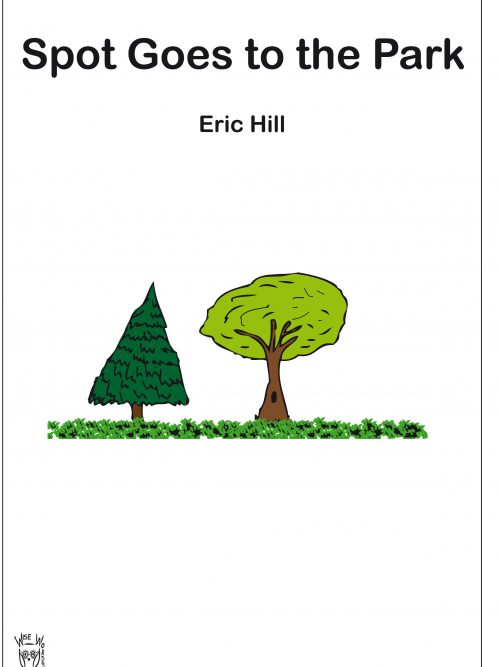 USING BOOKS TO ENHANCE A CHILD'S UNDERSTANDING AND INCREASE HIS/HER EXPRESSIVE LANGUAGE You can use a book to expand a child's • vocabulary (park, cards, wagging, looking, gate, scaring, newspaper) • understanding of concepts (e.g. accident, high, over, grateful, frightened) • ability to understand questions Wise Words Scripts - offer clinicians, teachers and parents readily available questions designed specifically for each book. A script provides a variety of questions at each level of understanding for each page of the book. A teacher or clinician working with a group of children can tailor questions to each child's language ability. This script and other available scripts have been based on Marion Blank's Model of Classroom Language. Marion Blank recognised the importance of keeping questions and statements within a child’s level of understanding. The more concrete the statement or question, the easier it will be for the child to understand. As questions become more abstract, they become harder for children to answer. The Blank Model is divided into 4 levels of questioning, moving from the concrete (easiest) at Level 1 to the abstract (most difficult) at Level 4.
USING BOOKS TO ENHANCE A CHILD'S UNDERSTANDING AND INCREASE HIS/HER EXPRESSIVE LANGUAGE You can use a book to expand a child's • vocabulary (park, cards, wagging, looking, gate, scaring, newspaper) • understanding of concepts (e.g. accident, high, over, grateful, frightened) • ability to understand questions Wise Words Scripts - offer clinicians, teachers and parents readily available questions designed specifically for each book. A script provides a variety of questions at each level of understanding for each page of the book. A teacher or clinician working with a group of children can tailor questions to each child's language ability. This script and other available scripts have been based on Marion Blank's Model of Classroom Language. Marion Blank recognised the importance of keeping questions and statements within a child’s level of understanding. The more concrete the statement or question, the easier it will be for the child to understand. As questions become more abstract, they become harder for children to answer. The Blank Model is divided into 4 levels of questioning, moving from the concrete (easiest) at Level 1 to the abstract (most difficult) at Level 4. -
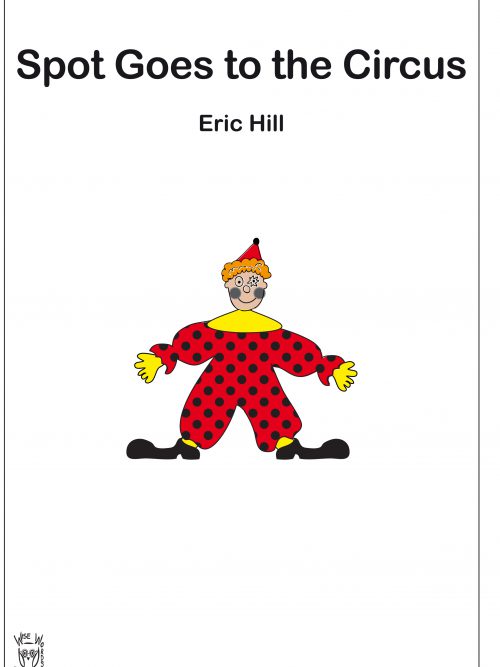 USING BOOKS TO ENHANCE A CHILD'S UNDERSTANDING AND INCREASE HIS/HER EXPRESSIVE LANGUAGE You can use a book to expand a child's • vocabulary (lion, trapeze, cage, balancing, circus, swinging) • understanding of concepts (e.g. high, difficult, scary, easy, large) • ability to understand questions Wise Words Scripts - offer clinicians, teachers and parents readily available questions designed specifically for each book. A script provides a variety of questions at each level of understanding for each page of the book. A teacher or clinician working with a group of children can tailor questions to each child's language ability. This script and other available scripts have been based on Marion Blank's Model of Classroom Language. Marion Blank recognised the importance of keeping questions and statements within a child’s level of understanding. The more concrete the statement or question, the easier it will be for the child to understand. As questions become more abstract, they become harder for children to answer. The Blank Model is divided into 4 levels of questioning, moving from the concrete (easiest) at Level 1 to the abstract (most difficult) at Level 4.
USING BOOKS TO ENHANCE A CHILD'S UNDERSTANDING AND INCREASE HIS/HER EXPRESSIVE LANGUAGE You can use a book to expand a child's • vocabulary (lion, trapeze, cage, balancing, circus, swinging) • understanding of concepts (e.g. high, difficult, scary, easy, large) • ability to understand questions Wise Words Scripts - offer clinicians, teachers and parents readily available questions designed specifically for each book. A script provides a variety of questions at each level of understanding for each page of the book. A teacher or clinician working with a group of children can tailor questions to each child's language ability. This script and other available scripts have been based on Marion Blank's Model of Classroom Language. Marion Blank recognised the importance of keeping questions and statements within a child’s level of understanding. The more concrete the statement or question, the easier it will be for the child to understand. As questions become more abstract, they become harder for children to answer. The Blank Model is divided into 4 levels of questioning, moving from the concrete (easiest) at Level 1 to the abstract (most difficult) at Level 4. -
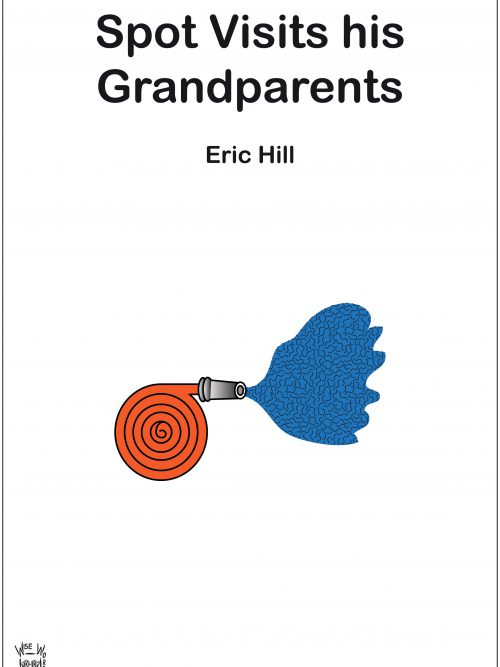 USING BOOKS TO ENHANCE A CHILD'S UNDERSTANDING AND INCREASE HIS/HER EXPRESSIVE LANGUAGE You can use a book to expand a child's • vocabulary (grandparents, shovel, garden fork, spray, eggs, visiting, picking) • understanding of concepts (e..g wet, hidden, broken, hot, comfortable) • ability to understand questions Wise Words Scripts - offer clinicians, teachers and parents readily available questions designed specifically for each book. A script provides a variety of questions at each level of understanding for each page of the book. A teacher or clinician working with a group of children can tailor questions to each child's language ability. This script and other available scripts have been based on Marion Blank's Model of Classroom Language. Marion Blank recognised the importance of keeping questions and statements within a child’s level of understanding. The more concrete the statement or question, the easier it will be for the child to understand. As questions become more abstract, they become harder for children to answer. The Blank Model is divided into 4 levels of questioning, moving from the concrete (easiest) at Level 1 to the abstract (most difficult) at Level 4.
USING BOOKS TO ENHANCE A CHILD'S UNDERSTANDING AND INCREASE HIS/HER EXPRESSIVE LANGUAGE You can use a book to expand a child's • vocabulary (grandparents, shovel, garden fork, spray, eggs, visiting, picking) • understanding of concepts (e..g wet, hidden, broken, hot, comfortable) • ability to understand questions Wise Words Scripts - offer clinicians, teachers and parents readily available questions designed specifically for each book. A script provides a variety of questions at each level of understanding for each page of the book. A teacher or clinician working with a group of children can tailor questions to each child's language ability. This script and other available scripts have been based on Marion Blank's Model of Classroom Language. Marion Blank recognised the importance of keeping questions and statements within a child’s level of understanding. The more concrete the statement or question, the easier it will be for the child to understand. As questions become more abstract, they become harder for children to answer. The Blank Model is divided into 4 levels of questioning, moving from the concrete (easiest) at Level 1 to the abstract (most difficult) at Level 4.

